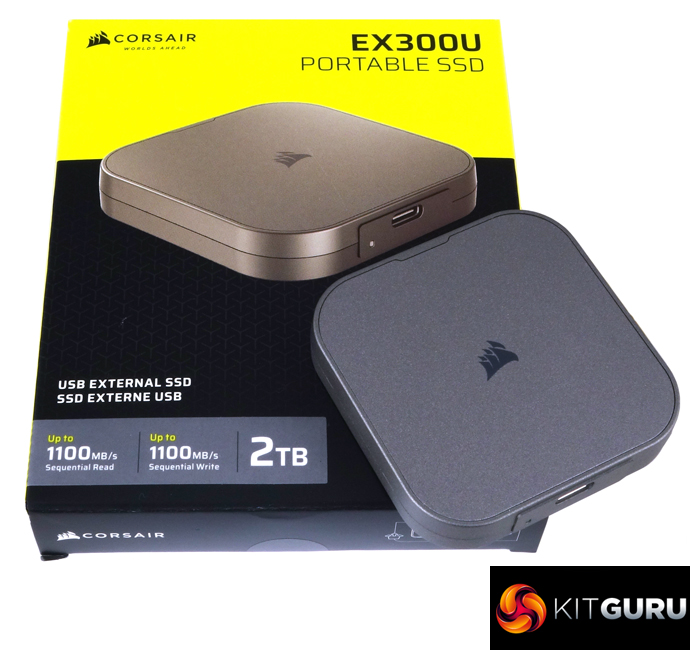The latest addition to Corsair's stable of external SSDs is the EX300U. Corsair's external SSD portfolio is split into three speeds. At the entry-level 10Gbps tier, there is the Voyager GTX (which comes in 256GB to 1TB capacities), then the mainstream EX100U at 20Gbps (1TB-4TB capacities) and the high-end speedster of the group, the EX400U (1TB-4TB), which sports a USB4/Thunderbolt 40Gbps interface. The new EX300U slips into the entry-level space.
The drive utilises a USB 3.2 Gen2 x1 interface, supported by a Phison PS2251-17 (U17) controller. The PS2251-17 is the world's first native USB 3.2 Gen2 x1 chip, which means that there is no need for the space required by a bridging IC, so drives can be designed in smaller formats. At 64.3 x 64 x 12mm, the EX300U is small enough to fit comfortably in the palm.
Available in three capacities: 1TB, 2TB and a flagship 4TB model, Corsair's EX300U has official sequential performance ratings of 1,100MB/s for both reads and writes. Using the ATTO benchmark, we couldn't quite hit the official maximums; the best we saw was 925MB/s for reads and 936MB/s for writes. Switching over to the CrystalDiskMark 8 benchmark, the best read figure we saw was 959MB/s (default compressible data test and Peak Performance profile 0 fill tests). The best write figure was 977MB/s, which came from the default test (using compressible data).
The 2TB Corsair EX300U has an MSRP of £159.99.
Pros
- Compact size.
- Sequential performance.
Cons
- Couldn't quite hit the maximum official speeds with our testing.
KitGuru says: Compact with decent performance, the EX300U extends the capacity of Corsair's 10Gbps SSD range from the current maximum 1TB of the Voyager GTX series, up to the 4TB maximum of this new family.
 KitGuru KitGuru.net – Tech News | Hardware News | Hardware Reviews | IOS | Mobile | Gaming | Graphics Cards
KitGuru KitGuru.net – Tech News | Hardware News | Hardware Reviews | IOS | Mobile | Gaming | Graphics Cards




